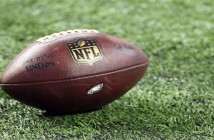Sports betting has come a long way from just gut feelings and fan loyalty. With the advent of advanced analytics, you can leverage NFL stats to make smarter bets and increase your chances of winning. This article will delve into practical strategies for using NFL statistics to enhance your betting success.
Why Advanced NFL Stats Matter
Traditional stats like wins, losses, and total yards often fail to tell the whole story. Advanced statistics offer a deeper understanding of a team's performance by evaluating more granular details.
Stats like Defense-adjusted Value Over Average (DVOA), Expected Points Added (EPA), and Player Efficiency Rating (PER) provide more nuanced insights. For example, DVOA adjusts for the quality of opponents, giving you a clearer picture of a team's efficiency.
Benefits of using advanced NFL stats:
- Accuracy: Offers a more precise analysis compared to traditional metrics.
- Predictive Power: Enables better forecasting of game outcomes.
- Competitive Edge: Gives you an advantage over bettors who rely solely on traditional stats or intuition.
Key NFL Statistics You Should Know
Understanding and incorporating the right statistics into your betting model are crucial. Here are some key advanced NFL stats:
- Defense-adjusted Value Over Average (DVOA): Measures a team's efficiency by comparing success on each play to the league average.
- Expected Points Added (EPA): Evaluates plays based on their impact on the likely score.
- Success Rate: The percentage of plays that are successful based on down and distance.
| Statistic | Description |
| Defense-adjusted Value Over Average (DVOA) | Measures efficiency against the league average. |
| Expected Points Added (EPA) | Assesses the value added by each play. |
| Success Rate | Percentage of favorable plays according to situation context. |
Incorporating NFL Stats into Betting Models
Once you understand the key stats, the next step is to incorporate them into betting models.
- Gather Data: Collect data from reliable sources like ESPN, ProFootballFocus, or Football Outsiders.
- Analyze: Look for patterns and correlations. For example, high DVOA values typically indicate a strong offense or defense.
- Compare Metrics: Cross-check various stats to validate your findings.
- Contextualize: Include situational factors like injuries and weather conditions.
- Predict Outcomes: Use your model to predict the probable outcome.
A simple example involves calculating the Expected Score using DVOA:
Practical Applications in NFL Betting
To make the most of these statistics, let's look at real-world applications:
- As an example, a team with a high offensive DVOA will usually be favored to score more points than anticipated when playing a team with a low defensive DVOA.
- EPA in Playoffs: Higher EPA values often correlate with playoff success, making these teams reliable choices for postseason bets.
- Situational Betting with Success Rate: Bet on teams with high success rates in third-down situations, as they are likely to maintain possession and control the game.
Example Betting Model
Let’s construct a simple model using DVOA:
- Data Collection: Gather DVOA stats for both teams.
- Initial Analysis: Compare offensive and defensive DVOA.
- Adjustments: Factor in injuries, weather, and home/away performance.
- Prediction: Calculate the Expected Score and determine probable outcomes.
Using this, you might predict a high-scoring game.
Conclusion
Advanced NFL stats can significantly enhance your betting strategy. By understanding key metrics like DVOA and EPA, and incorporating them into a robust betting model, you can make more informed decisions. Whether you’re a novice or a seasoned bettor, embracing these advanced statistics will give you a competitive edge.
Stay updated with the latest line NFL trends and always factor in situational variables to keep your models accurate.


